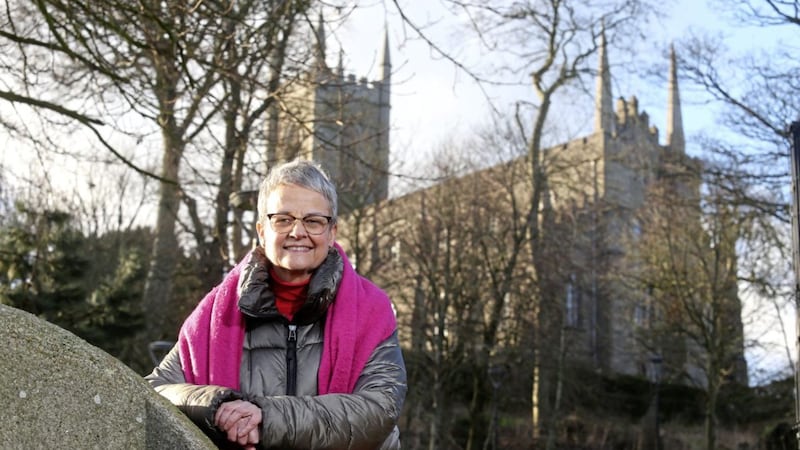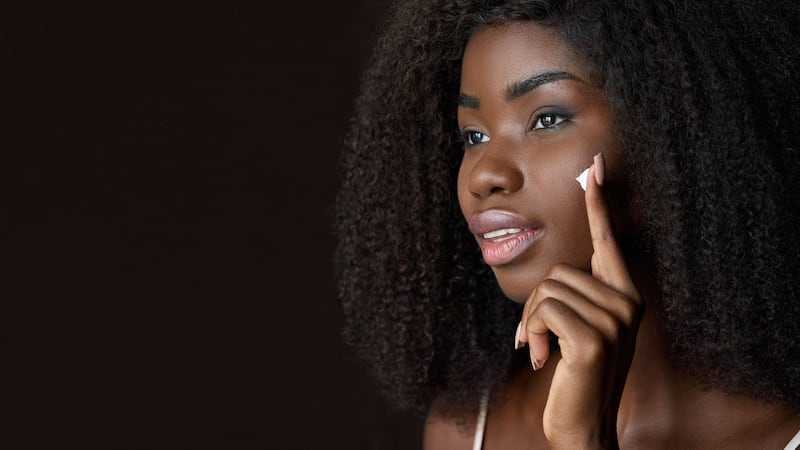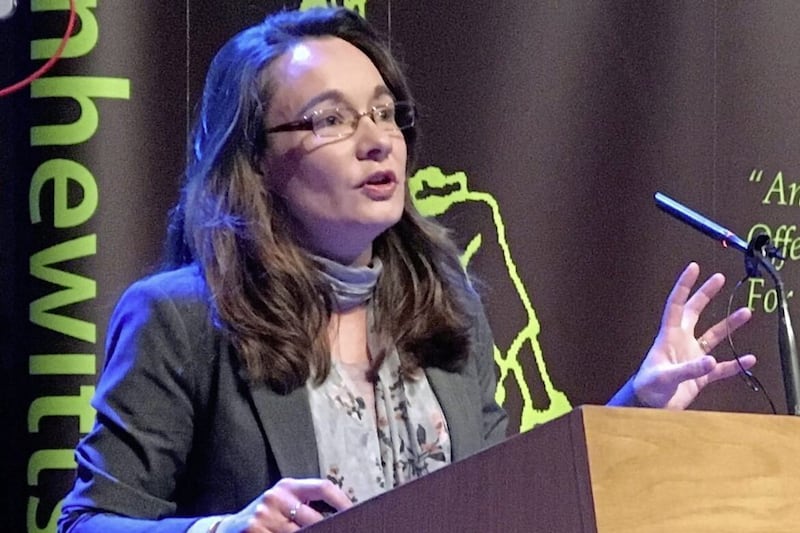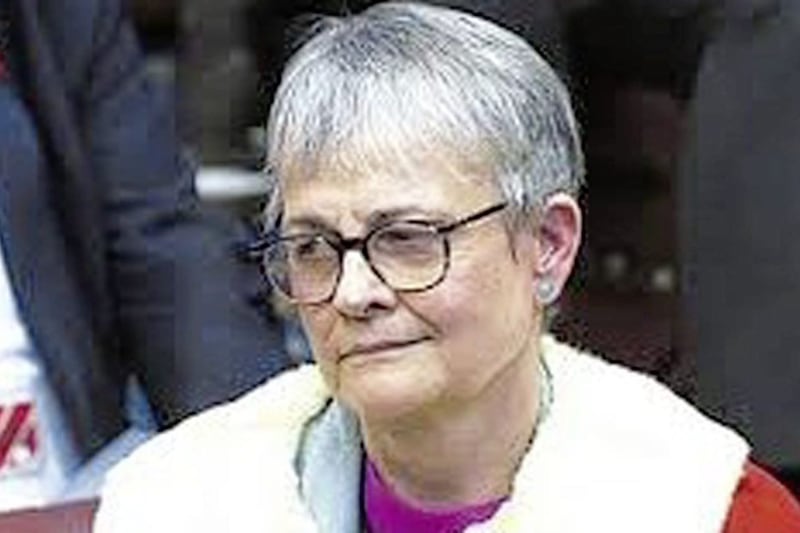MARGARET Ritchie is striding confidently towards a pre-booked table in her favourite Belfast restaurant and is looking radiant and happy; exactly how a woman on the move should look, really.
Her skin is glowing, her hair is growing – "I've had it cut three times since my treatment ended" – and she's just come out of her weekly exercise class with the new Macmillan Move More group feeling energised and ready for whatever's around the next corner.
The popular city centre eatery is buzzing with too-loud music and the heavy drone of chatter from nearby diners but, undeterred as ever, the gritty, no-nonsense former leader of the SDLP, purposefully makes her way through the crowd, just glad to be out-and-about again, doing 'normal' things like meeting people for lunch.
She is actually seeing a friend here later, but Margaret Ritchie, long-time social justice advocate and Queen's graduate (Geography and Politics) is happy to meet me first to talk about her painful, unexpected journey with breast cancer and some of the hard lessons she has learned along the way.
Her edges are softer in real life than media interviews would suggest and this 60-year-old one-time Downpatrick political heavyweight – she still does part-time lobbying and works behind the scenes with the SDLP – reveals a robust line in self-deprecating humour and a vulnerability that might surprise her detractors, if they chanced to look beneath the finger-wagging surface.
For, Margaret Ritchie, erstwhile invincible leader, former minister, MP and MLA, has discovered something astounding about herself: she is not invincible at all.
"That is one of the things that took me by surprise," she says, quietly. She has kind eyes, I notice. "I have seen this other side of the health service now and I think it is important that people in politics see the other side.
"The week after I finished my radiotherapy, Cancer Focus launched their new bra-fitting service and they asked me to speak at it. I remember being quite emotional at that event because it was somewhere I never expected to be, in a role I never expected to have. I never thought, being a busy politician, that I would be speaking from this side, as a service user.
"You think you are invincible, but that's a load of rubbish, because you're not; no-one is invincible. My cancer experience has made me even more annoyed at the impasse at Stormont because, not having a functioning government impacts on our health services and has brought home the real need for a cancer strategy in Northern Ireland.
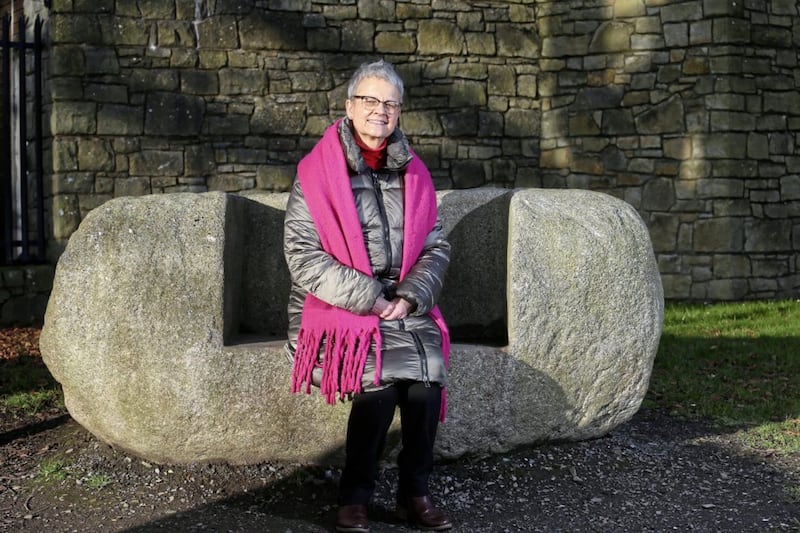
"Before I was diagnosed, I was like a spectator, but really, you are just an amateur talking about these things until you actually go through them. I think we have to waken up to the fact that, if we have been given responsibility for organising our health [services], we should take that responsibility seriously."
Having said that, she has nothing but admiration for the medical profession, from the surgeon who carried out her mastectomy, to the doctors, physiotherapists, nurses, auxiliary staff... everyone who helped ease her along an uncertain path which began following a routine three-yearly mammogram, almost a year ago.
"I went for my mammogram, as usual, on February 16 last year, but I knew something wasn't quite right with my right breast," she reveals, "so I wasn't surprised to receive the 'red' letter, less than a week later, calling me back to the breast assessment centre in Linen Hall Street for more tests."
The worst was confirmed and following a diagnosis of cancer in her right breast – she later learned it was early stage, Grade 3, lobular cancer – "I was told it was oestrogen positive and HER2 negative which meant it was a hormonal breast cancer" – she was booked for a mastectomy at the Cancer Centre in the City Hospital on March 23.
This would be followed by six sessions of two different types of chemotherapy and, after that, radiotherapy, finishing with hormonal medication which must be taken for five years.
"My official treatment – not the hormone treatment – officially finished on September 17 last year, and it has taken until now to start to feel like my old self again," she says. "The treatment was so very tiring, but, thankfully, I never felt sick.
"My hair fell out in clumps, though, in the shower, so I just had it shaved off. My hair was never exactly my crowning glory, although I have inherited my father's bushy eyebrows and, for some strange reason, they never lost their definition.
"I've got my head round it all now, but it's still sometimes a shock, especially when I'm in the shower, to realise that I no longer have a breast on the right side. I can't deny there is a sense of loss that part of my body has gone.
"I have a bra with a prosthesis, which, at first, seemed to me like a lump of blubber, but I've got used to it and it makes you feel more natural again. Luckily, I am quite a positive person and you have to decide to just get on with things."
In addition to the Move More classes, which are a collaboration between Macmillan Cancer Support and the district councils, Margaret has joined her local leisure centre and hopes to soon hit the gym.
"I'm doing all I can, really, to keep active and healthy and stop dwelling on this illness and the worry that it might come back."
That understandable concern crouches insidiously in the shadows of her mind somewhere, but this determined cancer patient is slowly gaining the upper hand.
She is a visible and supportive presence at various cancer events now that charity personnel are forced to fill the lobbying void left by our absent health minister and politicians and she has also volunteered for a medical trial looking at aspirin's role in preventing breast cancer.
"I don't know if I'm actually on aspirin or a placebo and I won't find out for about three years," she explains. "I asked, 'What else can I do?' and they put me on a bone-strengthening tablet called Clodronate which may help prevent secondary breast cancer. You have to take it every morning on an empty tummy and stay upright for an hour."
A woman of faith – "I was humbled by the prayers said for me by people across all sections of the community" – the happily unmarried Ms Ritchie, who believes she was "slightly [too] intolerant" to have children, has decided to share such personal details to encourage other women to "take up every opportunity for testing" and keep their mammogram appointments.
"Your health really is your wealth and when something major goes wrong, it puts everything else into perspective – even politics," she reflects.
But, just in case I run off with the wrong idea, she quickly adds: "When we [SDLP] lost our [Westminster] seats on June 8 2017, I said I wouldn't be walking away and I'm not walking away.
"There's still a future for politics here, not the politics of marginalisation or polarisation, characterised by Brexit, but people will want the middle ground again, eventually. When that happens... well, I want to be part of it."
